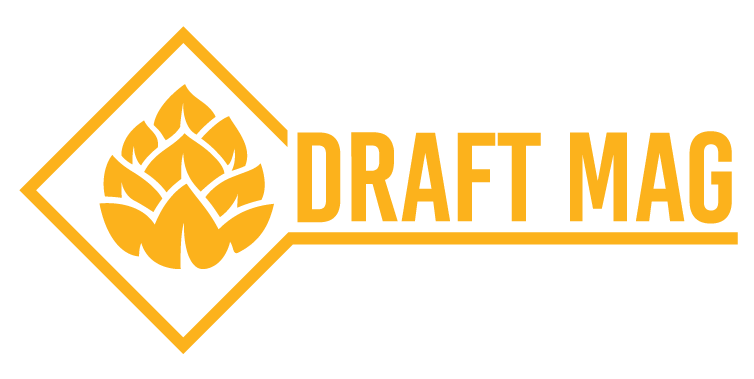How Much Does a Keg of Beer Cost? A Comprehensive Guide
The questions “How much does a keg of beer cost, and is it really cost-effective to buy one?” passes through the minds of most people who are planning to host a drinking party. A Barrel keg for draft beer in large quantities is a great way to get your hands on premium beer at a lower price. Be it a friend’s meet, a beach party, or a wedding reception, sometimes you need beer in large quantities, and keg beer can be the savior.
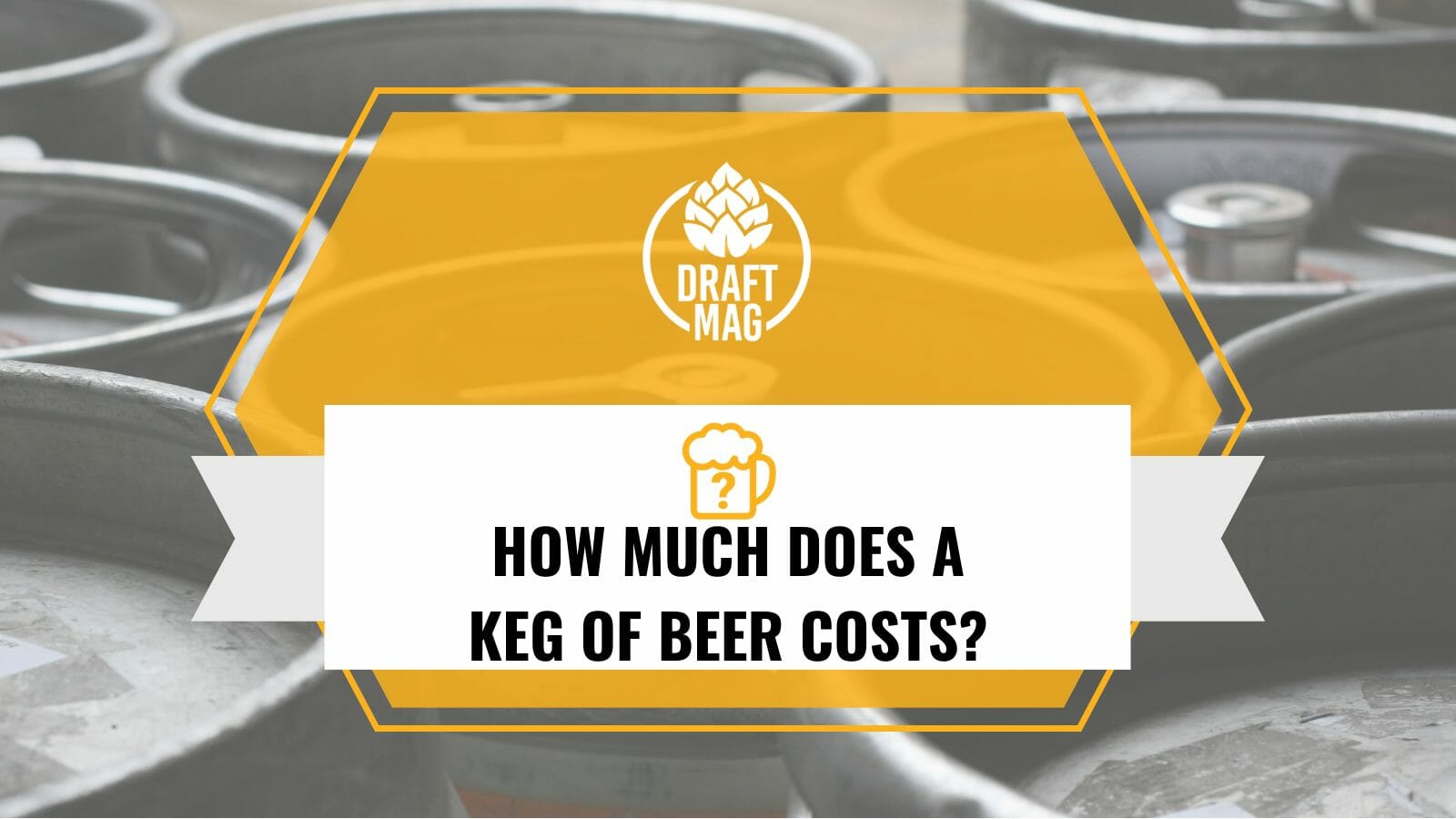
With the help of this complete guide, let’s learn more about the cost of beer kegs and if it is worth all the hype it gets.
How Much Is the Cost of One Keg of Beer?
The cost of one keg of beer can range anywhere between $20 to $250 per keg. The price of each keg is different depending on the brand, availability, transportation costs, market demands, quality of beer, and more. The price will also vary depending on where you buy a keg.
If you rent it, the price tends to be a little higher than the average cost. Even with all these factors added, a keg of beer can be much more cost-effective for a party setup instead of buying multiple individual bottles or cans.
Some people buy kegs just for huge parties, but many beer lovers like to consume beer regularly from a tap, and visiting breweries every time might be tough. So, at-home kegs of beer are a great way to serve yourself your favorite beer from the tap right inside the comfort of your own home.
– Miniature Kegs
Miniature kegs can be less costly and start at only $20 per keg. These hold only 1.3 to 1.5 gallons of beer and serve a smaller number of people. If your gathering is very small, this can be effective.
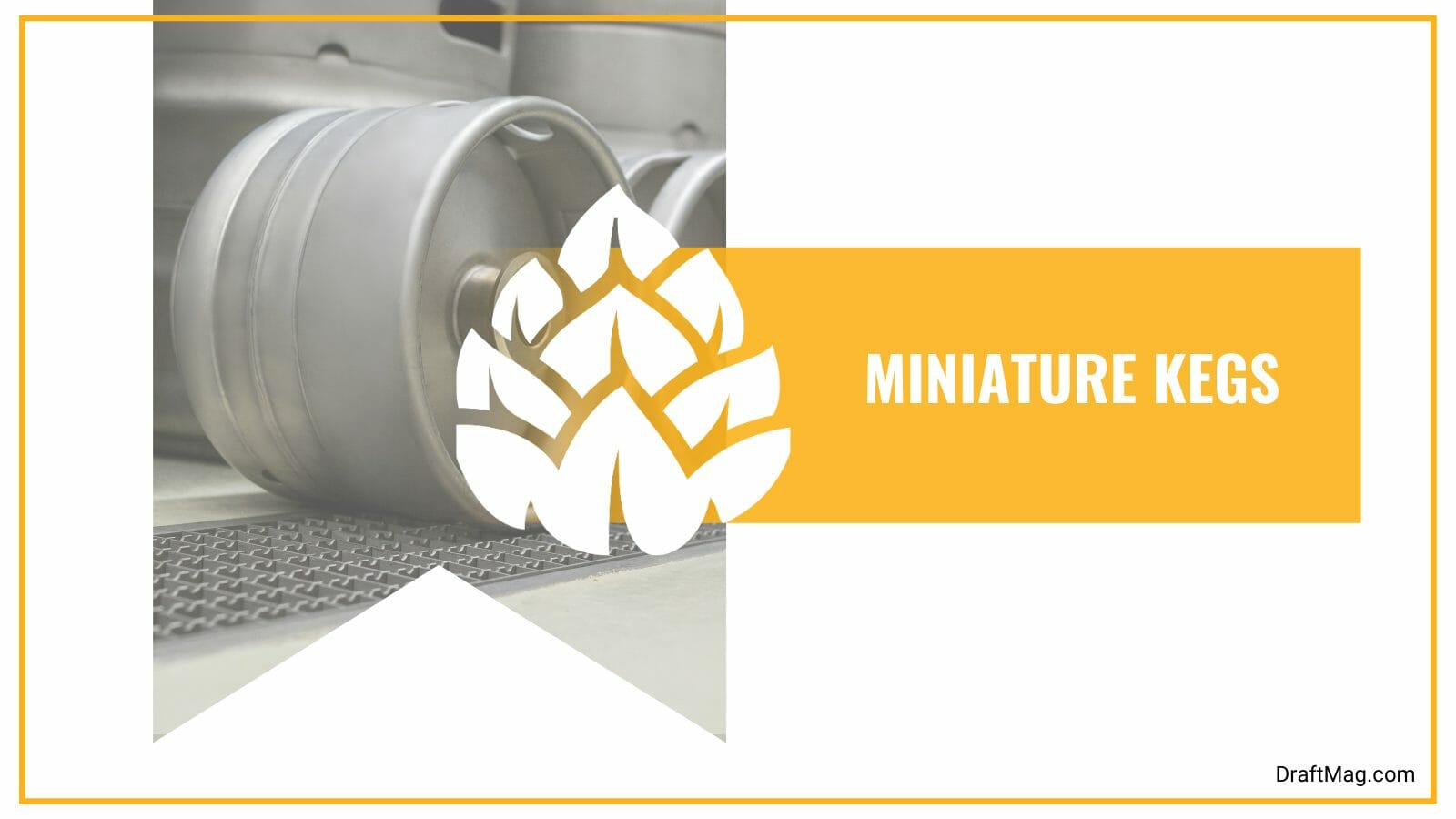
Take note that you will have to consider not only the number of people who will be drinking from the keg, but also the amount of beer each person will want to consume. Even if you have invited only a few people, miniature kegs might not be enough if they enjoy drinking a lot of beer.
– Half-barrel Kegs
A standard half-barrel keg can be one of the highest prized kegs. They generally cost between $190 to $250. These kegs serve a large number of people and contain more than 123 to 160 standard glasses of beer.
So when you choose a beer keg, make sure to see how much beer the keg contains. Even though kegs are much cheaper, you need to finish the keg within a certain period to avoid the beer going bad and starting to smell skunky. Moreover, the beer will lose its punch and fizz, and the beer-drinking experience will fall flat, so choose the keg volume depending on the size of your crowd and your consumption rate.
What is the amount of beer in a half-barrel keg? A half-barrel keg generally contains 15.5 gallons of beer. The name can sometimes be deceptive for new beer lovers. The half-barrel keg is actually the full keg that you most popularly come across. They are the average standard size available in most bars.
This means that a half-barrel keg can make about 124 glasses (16 ounces each), or it can make 31 growlers (64 ounces each).
– What Factors Affect the Price of Beer Kegs?
The factors that affect the price of beer kegs include the size of the keg, your supplier/distributor costs, transportation costs, market demand, quality of beer, rebranding of particular beers, keg type, keg brand, and if you are renting or buying.
The legal laws of selling bulk quantity beers in any particular region or state are also important factors to take note of.
– Different Keg Sizes and Their Cost
Different sizes of kegs can be mini kegs, half-barrel kegs, cask kegs, etc. Domestic beers tend to be cheaper than imported or global beer brands. Also, the craft beers of all beer brands tend to be costlier than other adjunct mass-produced beer varieties.
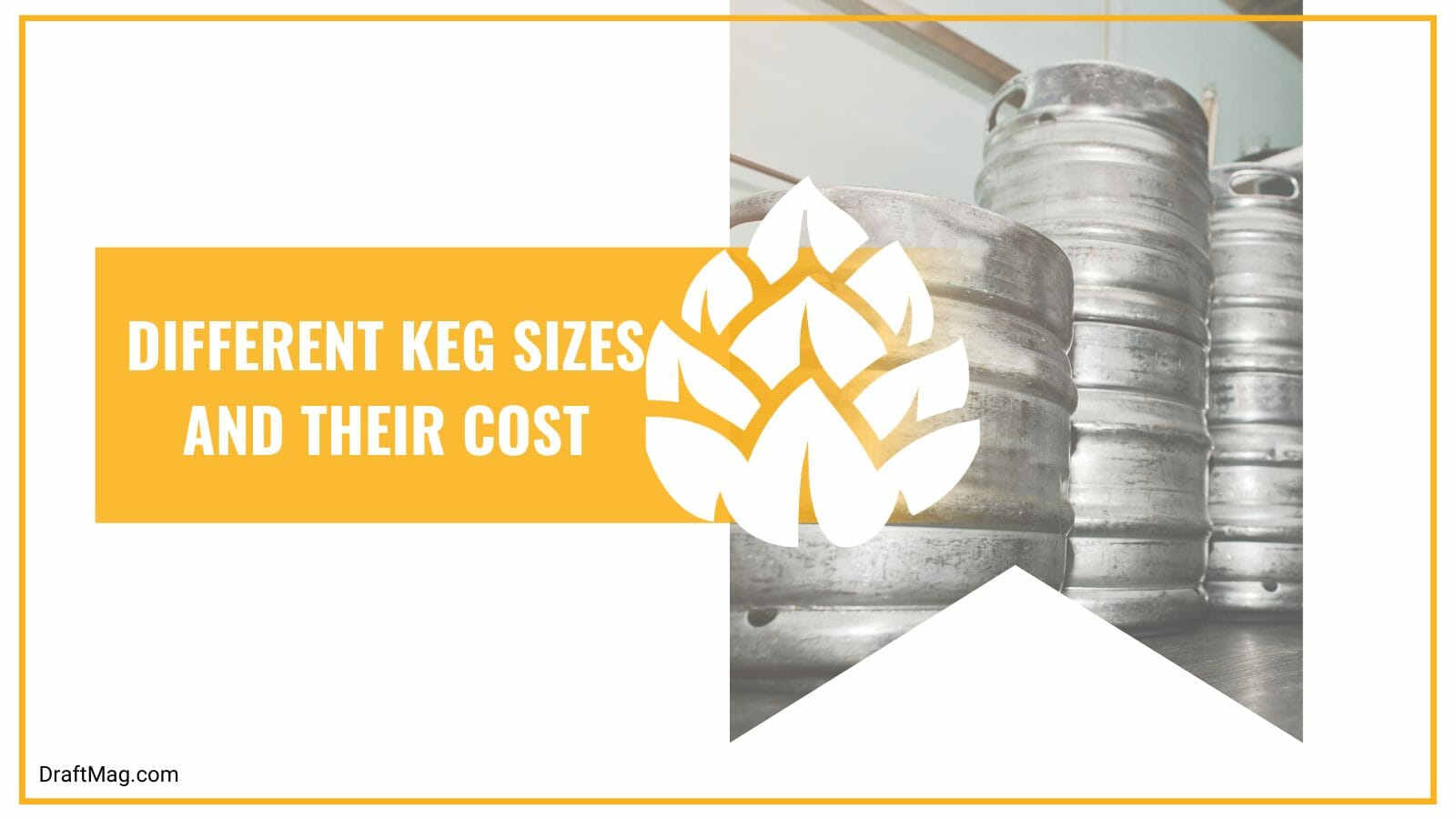
The cost of liquor store beers found in kegs is much cheaper because of their ready availability and huge production. If you want to get a supply of a popular or best-seller beer from a local craft brewer, it may cost you much more.
Here is a list of the most popular keg sizes, their content measurements, and their general cost.
- Mini kegs: 1.3 gallons (5 liters) at $20 to $30
- Corny keg / Cornelius keg: 5 gallons (19 liters) at $70 to $110
- Half-barrel keg: 15.5 gallons (58.7 liters) at $190 to $250
- Sixth barrel: 5.2 gallons (20 liters) at $70 to $130
- European standard: 13.2 gallons (50 liters) at $150 to $230
- Quarter barrel: 7.7 gallons (29 liters) at $90 to $150
- Cask keg: 9 gallons (40.9 liters) at $130 to $160
– Various Keg Size and Costs Based on Brands
The price of kegs is different from brand to brand. What is the cost of the kegs for some of the most commonly found beer kegs? Let us know more.
These are all approximate values/costs of the kegs, and they are subject to change due to market demand, supply, production, rebranding, and repricing by the brewers. Check with your brewer for the current price before you order your keg. Here is a list of these beer brands’ current prices when bought in kegs:
- Bud Light: $180
- Miller Lite: $190
- Corona Light: $230
- Michelob Ultra: $60
- Blue Moon: $100
When you rent or buy a keg from a popular craft brewer during off-season sales, like during the winter, there is a high chance that you will get cheaper rates. Whereas if you buy limited-edition seasonal flavored beers from small breweries, they will cost much more. Seasonal beers are generally flagship products and are sold at a premium price because these variants tend to be very popular.
In such cases, the size of the keg hardly matters — the popularity and brand value matter more, and these are the factors that push up the average price. For example, the Dogfish Head beer may cost $400 for one half-barrel keg. On the other hand, a popular beer like Light Bud can cost only $180 for one half-barrel keg.
– Cost of Renting Keg Beer
It can cost around $15 to $30 to rent a keg. Most of the breweries in question generally have a beer keg renting policy where you can return the keg to the makers after you finish the contents. These rental costs are not much, hence the low value of the beer kegs.
In case you order the beer online, you will also have to pay transportation costs. But if you pick up the beer from your local supplier or neighborhood brewery, the delivery cost can be avoided.
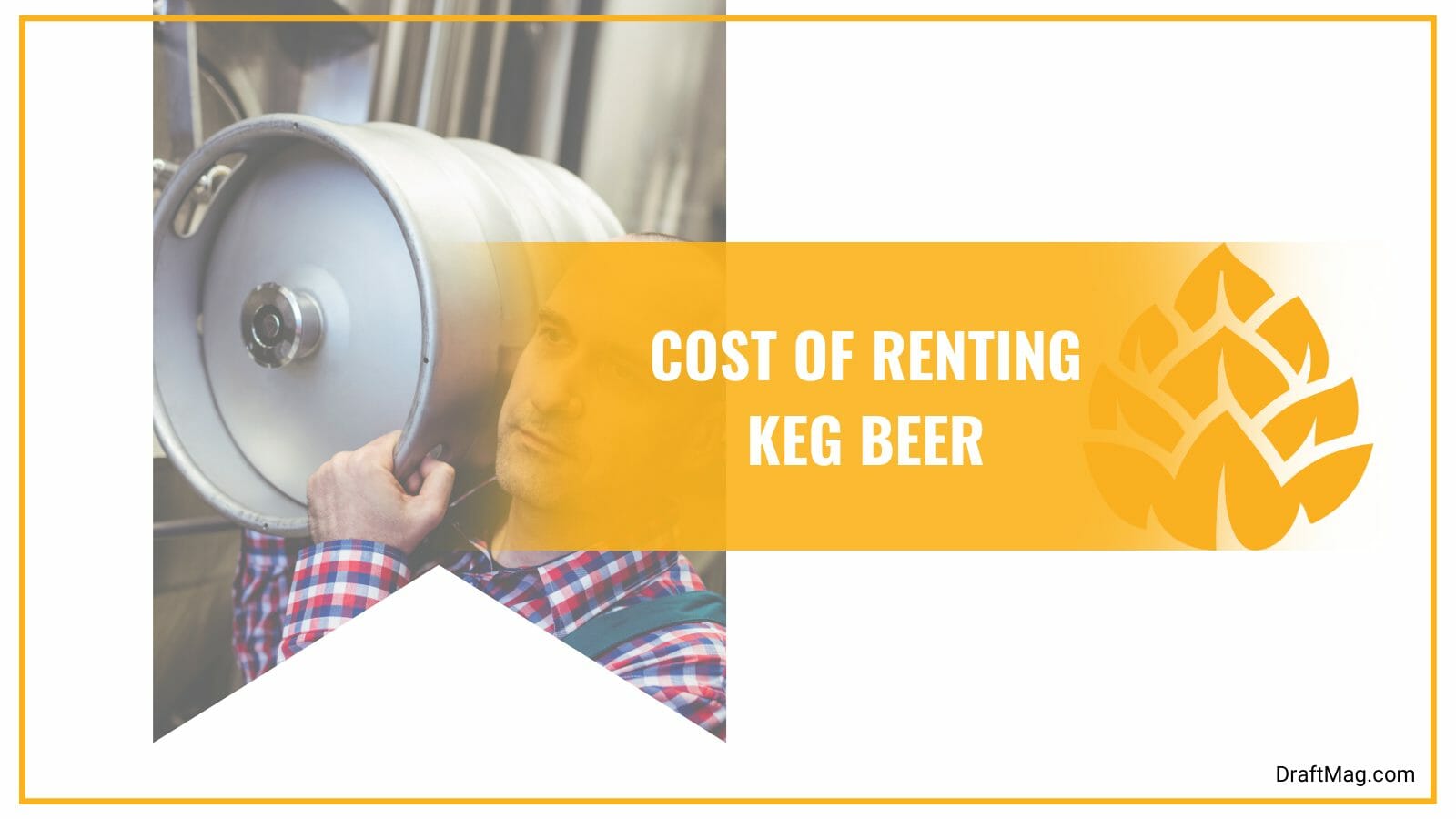
Brewers tend to take a deposit amount for each keg they rent to their customers. This acts as a safety deposit in case there is any damage to the keg. You also need to remember that when you return a rented keg, you must wash and clean it before sending it back. If you send an unclean beer keg back to the supplier, they will deduct money from your deposit.
The deposit amount varies for each brewery and brand. It can be somewhere between $20 to $50 per keg. If you plan not to return the keg and buy it instead, you might get charged the deposit fee, or in other cases, you can simply pay for the beer keg and buy the whole thing.
Why Should You Buy a Keg?
You should buy a keg because of the fun of pouring your own beer into glasses at your home. Buying or renting a keg can also be very eco-friendly and a greener way of having a beer. There is also less waste from different beer bottles/cans after a party.
Kegs are definitely better than cans if you’re having a party. Some people think that beer kegs are not great options when you want to offer different beer varieties at the same time. But instead of buying multiple cans and bottles of different beers, you can just buy small kegs of multiple beer varieties.
Sometimes there is a hefty discount on kegs during promotions or off-season sales, but you should compare the costs before you buy. Sometimes people go by the basic notion that buying beer in bulk can be cheaper in all cases, but sometimes that is not true. If the transportation cost of getting the keg to your home is as much as the keg, the purchase becomes impractical.
In such cases, you need to calculate and see if the beer cans/bottles make more sense for a small party. If you are having a huge party, it would be best to buy multiple kegs.
– Beer Keg Tips and Tricks
Beer kegs are totally worth the hype — more than you would guess. They are eco-friendly because you no longer use multiple bottles. Kegs are also great as beer dispensers that people can just serve themselves at parties. They are easier to store and dispose of than multiple bottles of beer.
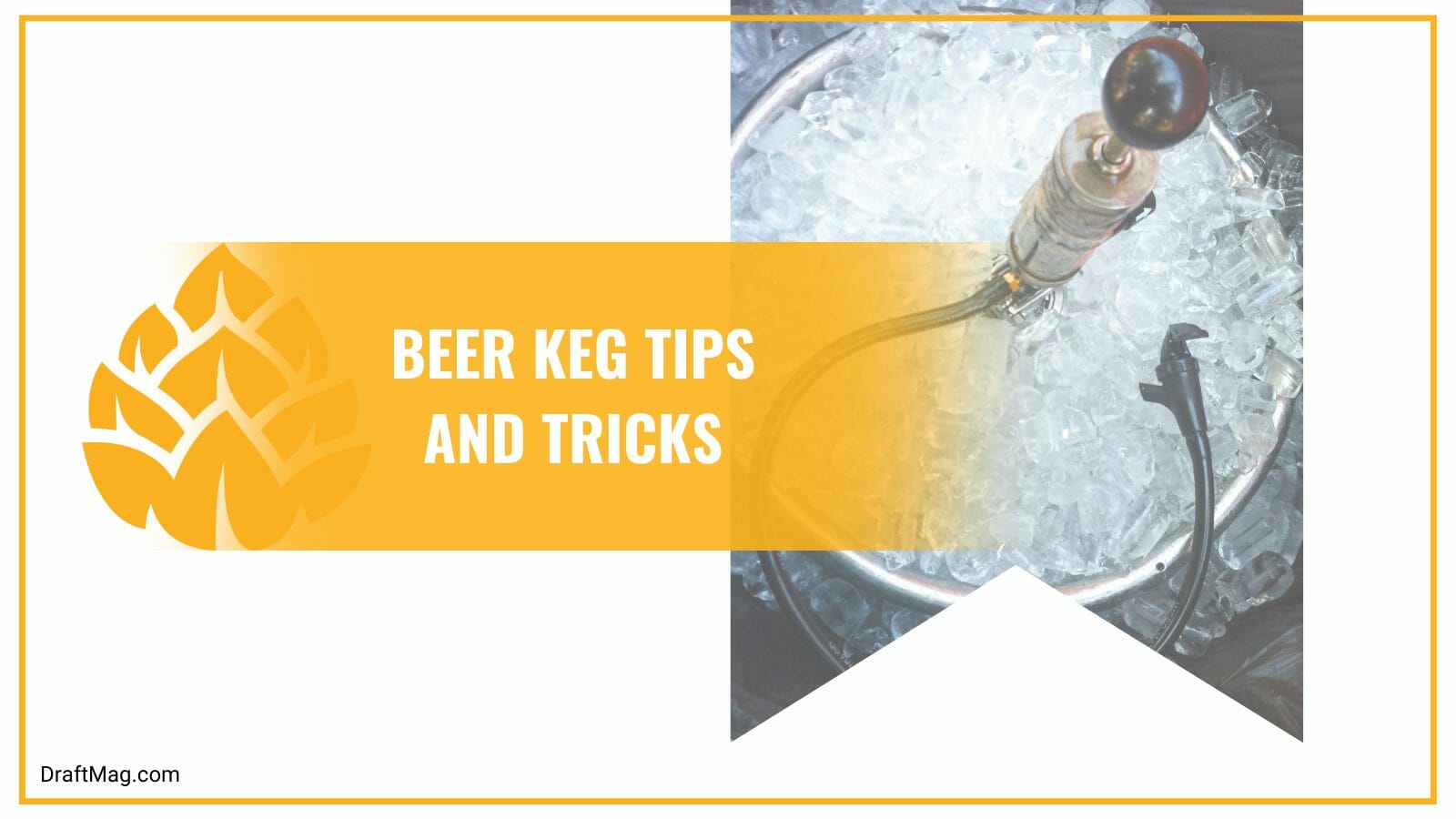
However, buying a keg is not just filled with fun and games. A keg is a big setup that needs planning and a well-thought-out course of action to make the purchase useful. Here are a few essential tips and tricks on how to best use the keg so that you get maximized benefits.
- Have enough space to store a keg. It is a big jar container that needs a lot of space to store. You can not possibly store the keg in your average-sized fridge.
- When you want to open up a keg of beer and serve it, always remember to ice the keg before use. If the temperature of the beer is not regulated, the beer can become excessively foamy, and the taste will go bad. There is also a high chance that you will end up wasting a lot of beer due to the foam.
- Always try to ice the beer keg in a bucket or drum where you can add a lot of ice.
- You’ll need a lot of ice to ice one keg of beer. It may be impossible for you to make that much ice at home. Try to buy the ice instead.
- Always use a tap to extract the beer from the keg. If you do not use a tap, you may end up spraying a lot of beer inside the room or on yourself and make a huge mess.
- The shelf life of any beer in a keg depends on the type of beer inside it. Most beers in kegs are non-pasteurized. These non-pasteurized draft beers generally do not have a very long shelf life. In case the beer is pasteurized, the beer will last much longer.
- You should ask your beer supplier/seller/brewer about the stipulated shelf life of each particular beer. It is best stored cold and consumed as soon as possible.
Conclusion
Beer kegs are a great way to save money, make your parties more eco-friendly, and have easier clean up sessions; they also work great as a beer dispenser for parties. So now that you know that beer kegs are cost-effective, let us learn some more about them before you buy your first keg.
- A beer keg can cost anywhere between $20 to $250 per purchase, but factors like market demand, transportation costs, brand value, etc., also play major roles.
- Brands like Bud beer kegs can cost only a mere $180 bucks and still serve around 123 to 160 glasses of beer.
- On the other hand, exclusive beer varieties and brands like a Dogfish Head craft beer keg can cost more than $400.
- Seasonal exclusive kegs cost much more. Beer lovers should try to buy their favorite kegs during sales or off-season discounts to cut costs.
Buying a keg is cost-effective if you plan it well, so make sure you know your budget before you buy one. Now that you’ve learned all you can about beer keg prices, why not go out and buy one or two for your party?
